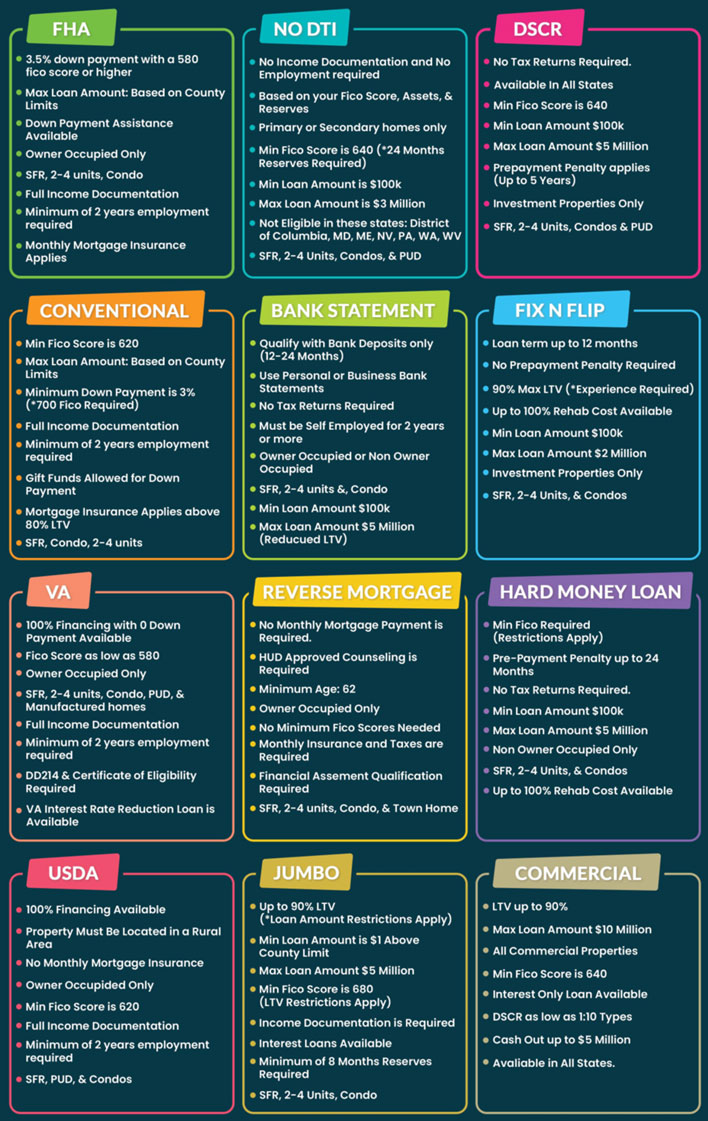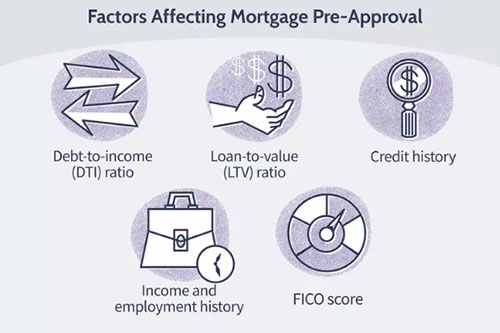First of all,
High credit scores lower interest rates.
A sufficient down payment lowers interest rates.
Interest rates increase if the loan amount is less than 300,000.
If the loan amount is too small, an advance fee will usually be required.
If the loan amount is too large (over $2 million), interest rates may increase, and fees may be required.
Most banks require an advance fees.

Types of loan
The loan type is simple.
If your income can be verified by tax reporting, it is called Full Doc; if not, No Doc. The difference between these two? Interest Rate! Full Doc has an interest rate around 1% lower than No Doc.
Tax returns (1040), W-2, and Pay Stubs will be required for Full doc.
For No doc, NO TAX DOCUMENT. You can talk with me.
Besides that,
There’s a difference depending on whether interest rates are fixed or variable, but now variable interest rates are almost gone and furthermore interest rates are not so low.
There are FHA and Conventional loans. FHA, standing for Federal Housing Administration, is backed by the government to ease lending by for example lowering FICO score, interest rates, and down payment by 3.5%.
However, making conditions easier increases interest rates.
Interest only loans are also possible, but you need to download more than 40%. If it’s below that, interest rates can go up.

As an expert in the field, I recommend Conventional loan, because it is common and most beneficial in most cases.
And DON’T FORGET, if you got a loan when the interest rate is high, and the interest rates goes down later, you can lower the mortgage interest rate through Refinance (if the remaining period is too short, it’s meaningless, but in the opposite case, only 1% difference can be a lot meaningful.)
There’s also Reverse Mortgage for those who are over 62 years old and have their own home, and of course, needs cash.
If you’ve been in the military, you have a VA mortgage, which is only handled by participating lenders. We don’t handle it. Anyway, this is very good loan for those who qualify.
Interest rates
Mortgage interest rates are applied differently to each person based on three main criteria: credit score, down payment amount, and loan amount. Additional factors can typically increase interest rates.
Generally, you receive a basic interest rate if:
* Your credit score is 760 or higher
* Your loan amount is $300,000 or higher
* Your down payment is 30% or higher of the house price
If these criteria are lower, interest rates may increase.
Interest rates also increase if the property is:
* More than a two-family home
* A condominium
* An investment property
There’s a concept called POINTS. One point equals 1% of the loan amount. Points are used to lower the interest rate. Typically:
* 1 point can lower the interest rate by about 0.25%
* The maximum number of points you can buy is 3
APR (Annual Percentage Rate) is another important concept. It includes:
* The basic interest rate
* All associated fees
The APR is calculated by adding the total fees (expressed as a percentage of the loan amount) to the basic interest rate. It’s usually a few percentage points higher than the basic rate. The APR allows you to see the overall cost of the loan, including fees.